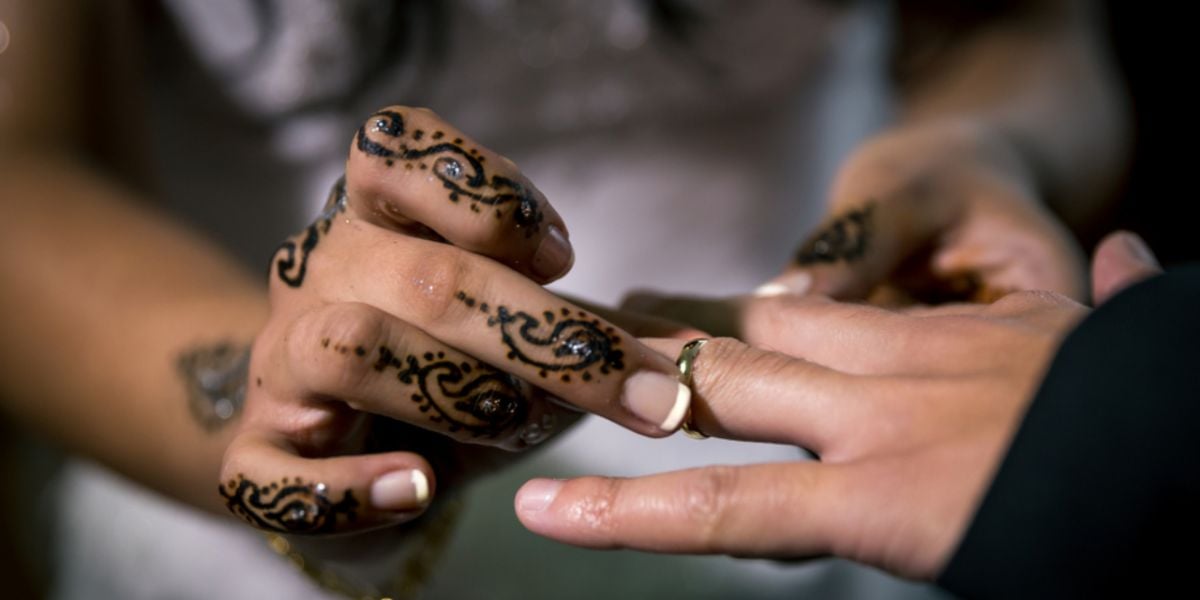
Saudi Arabia is a country that holds marriage and family as one of its core values. It is a privilege to get married and a huge accomplishment to settle and start a family. Unfortunately, getting married in Saudi Arabia isn't an easy process for expatriates. In fact, it is generally advised that you register your marriage outside the country. This article offers a brief overview of marriage, divorce and child custody laws in Saudi Arabia.

To ensure you don't find yourself in a complicated legal situation, it is highly recommended to do proper research and consult your home country's embassy and legal services before making any long-term arrangements.
Conditions for getting married in Saudi Arabia
For starters, regardless of your religious beliefs, only Muslim individuals can complete a legal Saudi marriage. The Saudi court does not recognize marriage between any other faiths. This is mainly based on the courts' adherence to Sharia (Islamic) Law.
That being said, if you are of a different religion and/or nationality, the only way to have your marriage recognized in Saudi Arabia is to marry outside of the country and upon returning, submit a legal marriage certificate, or you can get married at the embassy representing yours or your partner country, at the Kingdom. This is possible if the embassy has the legal approval needed from the country it represents, from the country your partner comes from and from the Kingdom. For instance, the Philippine Embassy is currently authorized to conduct marriages, but most European embassies do not provide such a service.
If you are Muslim, then there are a few things that you must check to ensure you qualify to marry in Saudi Arabia. See the options below and what is required of them:
- Both must be Iqama (residence permit) holders;
- Female must have written permission from her current sponsor;
- Both must agree to the terms of the marriage;
- Religious practices must be completed and agreed upon;
- Marriage Ceremony and License will be performed and issued at the Saudi Family Courts;
- Submit a letter of approval by the competent authority, with bringing two witnesses;
- A medical report for Saudis (original and copy);
- The attendance of the spouses or their representatives;
- The attendance of the guardian or the agent of the woman.
Guardianship in Saudi Arabia
The controversial guardianship laws have been reformed throughout the last years. However, still, when family matters, like marriage and divorce, are at stake, the maharams/guardians have a lot of power over the women in Saudi Arabia. A woman's guardian is usually the husband, but prior to him or if he dies, maharam could be another close relative — father, brother, uncle, or even son. The guardian has a decisive word upon woman destiny. Since 2019, women married to Saudis can register birth, marriage or divorce, without obtaining their guardian's approval. Before, the guardian used to be the one who possessed these documents. Note that the guardianship laws are applicable for non-Saudi women married to Saudi nationals. Therefore, after divorce, the Saudi ex-husband continues to hold the guardianship rights in force on the territory of the country over his ex-spouse, unless or until she remarries.
E-Certificate in Saudi Arabia
Since 2018, the Ministry of Justice has given the marriage officers the right to conduct home-based marriages for expats as for Saudi citizens. Afterwards, the e-marriage certificate was introduced. However, these procedures are still available only for Arab-speaking couples.
Procedures for getting married in Saudi Arabia
If the man is a Saudi national and the woman is a foreigner
The man must first apply to the court for permission to wed someone of a differing nationality. Once approval is granted, then they can proceed with the rest of the formalities.
The woman must have written permission from her current sponsor.
Both must agree to the terms of the marriage.
Religious practices must be completed and agreed upon.
The marriage ceremony and license will be performed and issued at the Saudi Family Courts.
Saudi nationality
Note that a foreign woman married to a Saudi is not eligible for Saudi nationality, except in some specific cases. She will receive the same benefits of a Saudi national but will not be granted citizenship. However, any children born from the marriage will receive Saudi citizenship upon birth.
If the woman is Saudi and the man is a foreigner
This case is very subject-specific. It is practiced within Saudi Arabia, but the courts must decide on a case-to-case basis.
Good to know:
A Saudi woman married to a foreigner will become her husband's permanent sponsor. Any children born between them will also fall under her sponsorship. However, a child born to a non-Saudi male is not eligible for citizenship.
Important:
Same-sex marriage is illegal in Saudi Arabia. It is illegal to practice homosexuality or display behaviours of such in public. Punishment is very severe.
Marriages in Saudi Arabia
Polygamy
As per Islam, a Saudi man can have up to four spouses, after proving he can take care of all of them financially.
Age for getting married
Since 2018, the maximum age for Saudi women to marry a foreigner was set at 50. The minimum age for a Saudi woman to marry a foreigner is 25. At the end of 2019, the Ministry of Justice issued an order to the court that marriages with individuals aged below 18 years must be referred to special courts. Although there is no official ban on the notoriously known child marriages, this is a step forward with tackling the practice.
Consensual union
Consensual union, or partnership, is not recognised by the Sharia law, therefore, by the authorities in Saudi Arabia, as well. It is rather a crime, to have sexual relations, let alone - to get pregnant and deliver out of wedlock in the country.
Wedding ceremonies
Like in the other Gulf countries, weddings in Saudi Arabia are big and lush feasts with huge guests lists. Usually, male and female guests are not celebrating together, so the women can dance, with uncovered faces, fancy coiffures, wearing luxury evening gowns, instead of their abayas. Photos, as you might have guessed, are not allowed.
Divorce in Saudi Arabia
Divorces are very common in Saudi Arabia. Although a man can divorce immediately after expressing his will verbally, he has to support his former wife and their children financially afterwards. Divorces with foreign women are complicated, especially when child custody is involved. In January 2019, the Saudi supreme court issued a law requiring women to receive text messages from the court when they are divorced. Before, a Saudi man could obtain a divorce without even informing the spouse.
A Saudi man married to a foreign woman can divorce her via a procedure known as “talaq”. Basically, the man simply needs to say “I divorce you” three times and have the divorce verified in court. On the other hand, if a woman wants to file for divorce, she will need to take her case to court — this process is known as “khula”. If the husband doesn't agree with the divorce filing, the woman will need to provide proof of what constitutes grounds for divorce in Saudi Arabia. This includes physical or sexual abuse, adultery, drug addiction or alcoholism, sexually transmitted diseases, criminal activity, abandonment and failure to provide for the family.
Both the wife and husband are allowed to present their cases in the court. If the court finds that there are sufficient grounds for the divorce, it will be granted. However, even if the court does agree with the presented evidence and grants the divorce, the man still retains the right to not consent to it. In this case, he may be eligible for financial compensation on the part of the wife — this means that the wife and her family will need to refund the dowry that has been paid by the husband to secure the marriage.
Child custody laws in Saudi Arabia
Important:
The Kingdom of Saudi Arabia is not a party member of the Hague Convention on the Civil Aspects of International Child Abduction. It also doesn't have international or bilateral treaties in place with most countries related to international parental child abduction. Citizens of other countries traveling to Saudi Arabia remain in the jurisdiction of Saudi courts and the laws and regulations of Saudi Arabia during their stay — which is also true for matters such as child custody. If you are a parent considering a trip to Saudi Arabia, make sure you take this into consideration.
Child custody in Saudi Arabia is based on Islamic law. The main concern of Saudi Courts in child custody cases is that the child must be raised in accordance with the Islamic faith.
Thus, custody is generally not awarded to non-Saudi women. If the woman is an Arab Muslim, judges will generally only grant her custody of her children if she is permanently residing in Saudi Arabia or if the father is a non-Muslim.
When it comes to handling custody cases of non-Muslims, Saudi courts will often refer these to family courts in the country from which the parents come from. In many cases, when a Saudi court is pressured to address a complicated custody situation, they would prefer to have both parents deported from the country to avoid associated legal complications.
Typically, under the Sharia law, a mother can keep custody of her male children until the age of nine and her female children until age seven. However, Sharia court judges have broad discretion in custody cases and often make exceptions to these general guidelines.
Even if the mother is permanently residing in Saudi Arabia and is granted physical custody of her children, the father will maintain legal custody and will have the right to determine where the children live and travel.
Additionally, there are a number of conditions under which the mother can lose custody of her children. For instance, if the mother moves to another country, the father will be entitled to take over the custody. The mother can also lose custody if she remarries a non-Muslim or if she resides in a home with non-relatives. Additionally, the court can take away the mother's custody rights if it determines that the mother is not capable of caring for her child or raising them in accordance with Islamic standards.
Under Sharia law, in the case of death or absence of the father, the custody of children will be awarded to the closest male relative of a Saudi father. This will be the course of action even if the Saudi father in question had made it clear that his wish is for the children to remain with the mother.
Useful links:
We do our best to provide accurate and up to date information. However, if you have noticed any inaccuracies in this article, please let us know in the comments section below.








